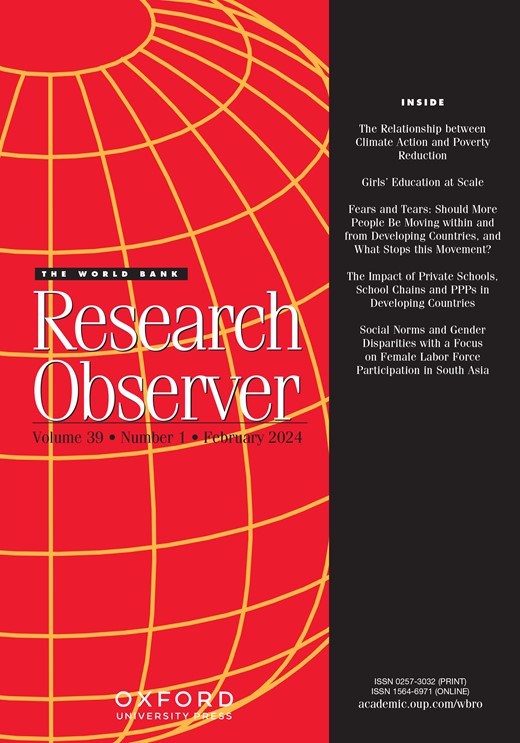衡量标准:比较基于调查的农村家庭收入和消费估计
IF 3.3
1区 经济学
Q1 DEVELOPMENT STUDIES
引用次数: 9
摘要
本文使用一个大型的家庭收入调查数据库来描述低收入和中等收入国家家庭调查中收入漏报的特征。目的是记录(a)这种低报的程度,以及(b)它是否以及如何随着被调查者、家庭、收入和调查设计特征而系统地变化。根据20个发展中国家和转型国家的农村家庭数据,并以消费支出作为基准,结果表明,观察到的收入/消费比率非常小,平均约为0.76。结果表明,收入低报与家庭和调查特征有系统的联系。特别是,少报的程度与收入来源密切相关,农业收入是受少报影响最大的组成部分。该分析还提供了证据来支持一个公认的命题,即低报倾向于随着家庭福利的增加而增加:越富裕的家庭似乎越少报收入。对调查设计和未来研究的启示。本文章由计算机程序翻译,如有差异,请以英文原文为准。
Measure for Measure: Comparing Survey Based Estimates of Income and Consumption for Rural Households
This paper uses a large database of surveys of household incomes to characterize income underreporting in household surveys in low- and middle-income countries. The objective is to document (a) the extent of this underreporting, and (b) whether and how it varies systematically with respondent, household, income, and survey design features. Drawing on rural household data from 20 developing and transition countries, and using consumption expenditure as a benchmark, results indicate that the observed income/consumption ratios are very small, being on average around 0.76. Results suggest that income underreporting is systematically associated with household and survey characteristics. In particular, the degree of underreporting is strongly associated with the income source, with agricultural income being the component suffering more than any other components from underreporting. The analysis also provides evidence supporting the well-established proposition that underreporting tends to increase with household welfare: richer households appear to underreport income more. Implications for survey design and for future research are drawn.
求助全文
通过发布文献求助,成功后即可免费获取论文全文。
去求助
来源期刊

World Bank Research Observer
Multiple-
CiteScore
12.60
自引率
1.20%
发文量
8
期刊介绍:
The World Bank Journals, including the Research Observer, boast the largest circulation among economics titles. The Research Observer is distributed freely to over 9,100 subscribers in non-OECD countries. Geared towards informing nonspecialist readers about research within and outside the Bank, it covers areas of economics relevant for development policy. Intended for policymakers, project officers, journalists, and educators, its surveys and overviews require only minimal background in economic analysis. Articles are not sent to referees but are assessed and approved by the Editorial Board, including distinguished economists from outside the Bank. The Observer has around 1,500 subscribers in OECD countries and nearly 10,000 subscribers in developing countries.
 求助内容:
求助内容: 应助结果提醒方式:
应助结果提醒方式:


